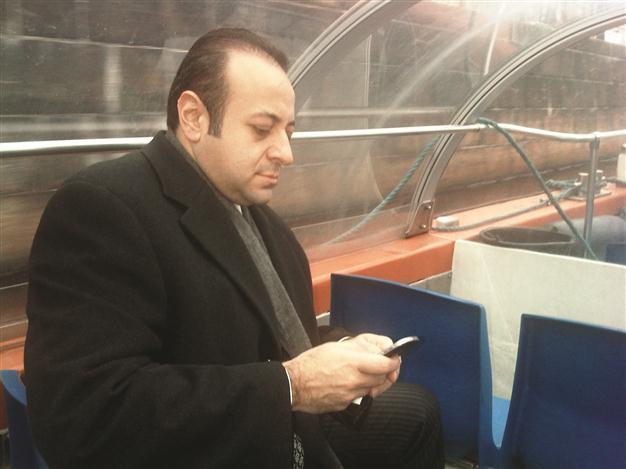Ankara tries to defy EU media criticism
COPENHAGEN

Bağış is seen sending an email to Stefan Füle and Carl Bildt regarding EU criticism of Turkey on press freedom.
There are sightseeing boat cruises along the canals of the Danish capital, but Turkish European Union Minister Egemen Bağış cannot enjoy the beauties of the Nordic city.He is sending messages using his mobile phone to European politicians like EU’s Enlargement Commissioner Stefan Füle and Swedish Foreign Minister Carl Bildt to avoid strong criticism in a statement to follow the EU Commission’s summit Dec. 9. The matter of concern is further strengthening of the wording of the EU statement on the state of freedoms in Turkey, particularly the extended detention periods, journalists in jail and freedom of press and expression issues.
Bağış gets his share of criticism because of his words last week when he was quoted as saying he did not believe there was a single journalist put in jail because of what he or she had written or spoken.
Yesterday he himself was sharing some of the criticism, acknowledging the need for a judicial reform. “I am sick and tired of being in a position to answer those criticisms everywhere I go,” he said. “I know that Prime Minister Tayyip Erdoğan is also uncomfortable because of this situation. I want the case to be closed myself. What should be done is to speed up trial periods through judicial reform.”
Concerning the journalists in jail, Bağış shares his observation: “It is interesting that when Tuncay Özkan was arrested, not many people reacted. But when Ahmet Şık and Nedim Şener were taken, the whole public opinion reacted. It seems the Turkish people are viewing the cases in isolation.”
When asked about the cases of publisher Ragıp Zarakolu and Professor Büşra Ersanlı, who were arrested within the scope of the outlawed Kurdish Communities Union (KCK) probes, or journalist Mustafa Balbay who has spent more than a thousand days behind bars without a court ruling, Bağış’s answer remains the same. “We have to take steps to deliver timely justice; that will solve a lot of problems. The Justice Ministry is working on it.”
Cyprus is another and actually a bigger problem in Turkey’s relations with the EU. Ankara has already announced it will not take the Greek Cypriot government as a counterpart when Nicosia assumes the EU presidency term in the second half of 2012.
Bağış links the problems in an interesting way. “We are ready to negotiate it with the EU Commission as the 23rd and 24th chapter open, which are among the 14 chapters that remain blocked by Greek Cypriots.”
The EU summit Dec. 9 may not be the No. 1 item on Turkish people’s agenda nowadays. The rigging probe in the football leagues, which has infected politics, is leaving its first rank to the recovery of Prime Minister Tayyip Erdoğan as of yesterday, when the emir of Qatar Sheikh al-Thani, who was expecting Erdoğan in his country later this week, visited him at home. The sheikh took the opportunity of an innovation conference in Istanbul, like U.S. Vice President Joe Biden did Dec. 3.
Despite the fact it is not the No. 1 issue on people’s agenda, the EU summit in Brussels is important for the Turkish government and is being watched closely. Bağış’s efforts and the messages he delivers show how seriously it is taken by Ankara.
















